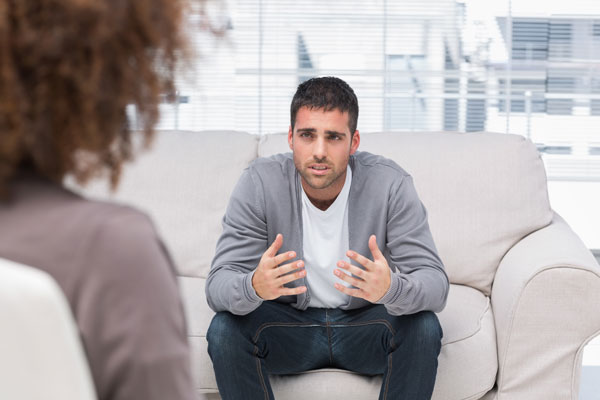Your Partner in Recovery
Our mission is to provide caring and compassionate support to you in your efforts to achieve your recovery goal. Our structured outpatient program includes symptom management assistance as well social and psychological support.
Our team of physicians, medical staff, case managers and therapists have the knowledge, skill and understanding to provide the support you need to get to where you want to be.
We provide a structured multi-phase out-patient program to help you overcome addiction and achieve recovery. We help you manage the symptoms of addiction through careful and monitored use of medications such as Suboxone and Vivitrol and we provide individual and group counseling designed to help you make the behavioral and social changes needed to achieve your goal. To support you we also offer help with basic life management issues and personal health monitoring/referral. We stand with you throughout your journey to recovery.
Understanding Addiction
Reprinted with permission from U.S. DEPARTMENT OF HEALTH AND HUMAN SERVICES Substance Abuse and Mental Health Services Administration Center for Substance Abuse Treatment
People become addicted to drugs in many ways but a very frequent introduction to substance abuse and addiction is through the use of drugs prescribed by a doctor to help manage pain. Drugs such as
- Codeine—an ingredient in some cough syrups and in one Tylenol® product
- Hydrocodone—Vicodin®, Lortab®, or Lorcet®
- Oxycodone—Percocet®, OxyContin®, or Percodan®
- Hydromorphone—Dilaudid®
- Morphine—MSContin®, MSIR®, Avinza®, or Kadian® Propoxyphene—Darvocet® or Darvon®
- Fentanyl— Duragesic® are opioids and can be addictive.
Sometimes People Misuse Opioids
Opioid medications are sometimes misused to self-medicate or to get a good feeling, called a “rush” or “high.” People misuse medications by taking their own prescriptions improperly, stealing medications, going to multiple doctors to get extra, or buying them from drug dealers. Sometimes to get high they drink a large amount of liquid medicine or crush a lot of pills to ingest, snort, or inject. And some people seek a high from heroin, an illegal opioid that can be smoked, snorted, or injected.
Opioids Have Side Effects
A person who takes opioids can become tolerant to them. This means that more of the drug is needed to obtain its effects. It is also possible to become dependent on opioids— to feel sick if there are no opioids in the body. This sickness is called withdrawal. Tolerance and dependence are common side effects of prescribed opioid medication. If tolerance is a problem, doctors may adjust the person’s dose or change the medication. People who have become dependent on opioid medication but are ready to stop taking it can taper off (take less and less) to avoid withdrawal. This should be done under a doctor’s care. Tolerance and dependence also occur in people who misuse medications or take heroin. Over time, such people often begin to feel uncomfortable without the opioid. They need to take it just to feel normal.
Opioids Can Be Addictive
Addiction is a disease that results when the opioid has made changes to the brain. A person using medication properly is not likely to get addicted, but this sometimes happens. Addiction usually occurs through misuse. Some people are at higher risk of addiction because of their genes, temperament, or personal situation. The signs of addiction are:
Craving—The mind develops an overwhelming desire for the drug.
Loss of control—It becomes harder to say no to using the drug. Use is compulsive and continues even when it causes harm.
It is not usually possible to taper off an addiction. More help is needed because the cravings are so strong and the fear of withdrawal is so great.
Opioid Addiction Can Be Treated
Opioid addiction is a chronic disease, like heart disease or diabetes. A chronic disease is a medical condition for life. It cannot be cured, but it can be managed. A person with an addiction can regain a healthy, productive life.
Most people cannot just walk away from addiction. They need help to change addictive behavior into nonaddictive, healthful patterns. They can get this help with treatment—with the care of doctors and substance abuse treatment providers. Treatment helps people stop using the problem drug. It helps them get through withdrawal and cope with cravings. Treatment also helps them move away from other harmful behaviors, such as drinking alcohol or abusing other drugs. Just as important, treatment helps people address life issues they might have that are tied to the addiction, such as feelings of low self-worth, a bad situation at work or home, or spending time with people who use drugs. In short, treatment helps people move into healthy, addiction-free lifestyles—into a way of living referred to as recovery.
Are You Ready to Begin Your Journey to Recovery?
It bears repeating: “Opioid Addiction Can Be Treated. A person with addiction can regain a healthy and productive life”. If you or a loved one has a substance abuse problem and are ready to do something about it, we are here to help. Cornerstone Project stands ready to be your partner in recovery and to provide a comprehensive treatment program to help you achieve your goals. Click here to learn more about us and our proven treatment methods.
